Rudeness, discourtesy, and aggressively insulting behavior hog the limelight these days. Often these traits are flaunted by people who have reached the pinnacle of the public and corporate spheres. Do we see this in consulting? What can we learn from it and how should we, as leaders of consulting firms act?
According to a 2016 poll**, 70 percent of Americans think that political incivility has reached “crisis” levels. More recently, a poll** reported that 74% of Americans think manners and behaviors have declined in the United States.
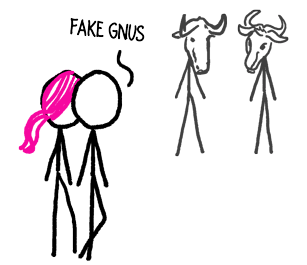
Of course, there is no absolute standard for civility. Some cultures view virtually all Americans as hopelessly rude.
Even within America, however, there’s general agreement that courtesy has leapt onto the endangered species list.
While the roots of this trend may be complex, there’s at least one, obvious, appealing aspect of boorish behavior: it seems to work. We can easily point to abusive, obnoxious individuals who have achieved material success and public acclaim.
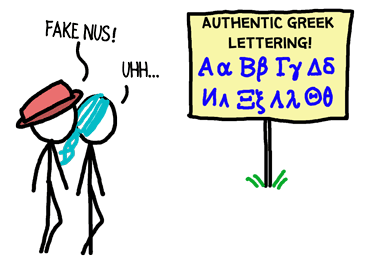
Consulting is not immune to this phenomenon. Even though we are a service profession, I know more than one consulting leader who has brokered a penchant for brash talk, cutting remarks, and unbridled ambition into a well-admired consulting firm and steady, seven-figure personal income.
Fortunately for these callous consultants, a meaningful percentage of the population interprets their approach as boldness, lack of fear, an unwillingness to be constrained by convention, and an admirable lack of inhibition.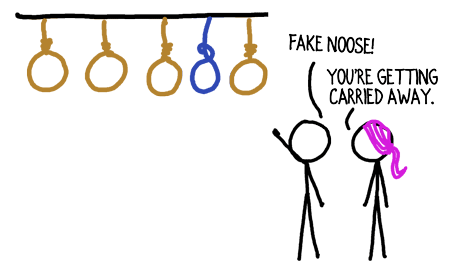
But let’s take a closer look at the bulls crashing through the china shops on their way to material success.
They—and the people who revere them—have incorrectly conflated the positive and negative traits of being aggressively loutish.
| Attributes of the Bull in the China Shop | |
| Positive | Negative |
|---|---|
| Strong | Destructive |
| Determined | Oblivious |
| Able to shape the world | Disconnected from others |
| Achieves personal goals | Net negative impact on the world |
Can you embody all of the positive traits without embracing their negative counterparts? Absolutely.
- Take a Stand, but not on top of others. You can stake a bold position without trampling on colleagues and competitors’ reputations.
- Pursue Your Vision unswervingly, without demolishing those in your path. Creative genius is figuring out how to collaborate with those who, at first glance, appear to oppose your progress.
- Embrace Risks, without hanging others out to dry. While failure is never fatal in consulting, your team may lack your risk tolerance. When you protect them you gain loyal supporters.
- Lift Others. Consulting is, at its best, Right-Side Up. Elevate your clients by helping them achieve their goals, even when it doesn’t benefit you directly. You’ll see your consulting practice, self-respect and joy flourish.
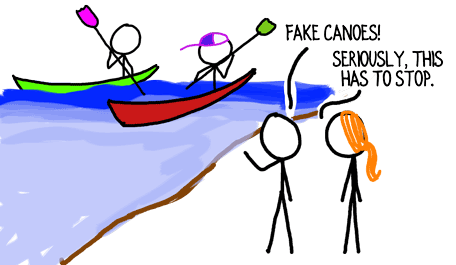
I don’t condone offensive attitudes in consulting. Still, we can learn from those who have prospered despite (or because of) their coarse personalities.
What other good traits do you think we should we adopt and what bad traits do you think we should we eschew as consultants and consulting firm leaders?
Text and images are © 2024 David A. Fields, all rights reserved.

 David A. Fields Consulting Group
David A. Fields Consulting Group 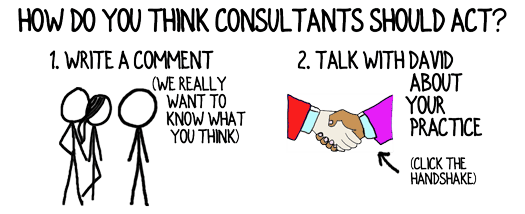

Very interesting and relevant perspective!
Consulting is a human business, built on relationships and personal interaction. Therefore, discussing how we interact with other people, seems like a worthwhile endeavor. I’m glad you posted your reaction, Mark.
I know a “rock star” consultant or two who could benefit from these insights. Unfortunately, those with personality disorders are rarely capable of changing. Having their behavior reflected back at them often enrages them. We must practice mindfulness as we build relationships and interact with others, checking our ego at the door.
Mark, you’re right that it’s likely that many consultants who “need it most” would reject this article outright. The point, of course, is not to change them–it’s to learn from them and change ourselves.
Whether or not we approve of a particular person’s behavior, they may have achieved success. If we can separate the baby from the bathwater, we can enjoy the benefits while discarding the discarding the dirty bits.
You’ve made a good point, and I appreciate you contributing to the discussion.
The positive traits you mention have to FAR outweigh the negative for the betterment of others for this behavior to be effective.
Kevin, you’re making an important point; however, if you have a moment, could you clarify it? It’s not totally clear to me which behavior you think is ineffective and what is required to be effective. I look forward to delving into your point of view further.
David – I am referring to your list of “Attributes of a Bull in a China Shop” when I say the positive need to FAR outweigh the negative. And, those behaviors have to be for the betterment of others… for a cause or group… and not for a single person.
Thanks for the clarification, Kevin. I’d go a step further and suggest that, as consultants, we should seek to minimize or eliminate the negative attributes entirely. In other words, we want to emulate only the positive attributes of the bull in the china shop–and recognize there are positives–not act like the bull. I appreciate you doubling back on this.
Are you comfortable in your own skin? Are you proud of the legacy you’re building? How do you want to be remembered when you’re gone?
You’ve offered three excellent questions for consultants to consider, Richard. As an action step, it may be worth asking at least the latter two questions as part of our regular, monthly, priority-setting sessions. Thanks for suggesting them.
David – I think you may have forgotten the most important factor: fake nudes. https://images.esellerpro.com/2316/I/129/688/lrgscaleAC265.jpg
That’s a good one, Dan! (Not totally sure how to illustrate a nude stick figure, though.) Thanks for contributing another pun. I’m thinking of adding a pun-count to the email. Sort of like Hirschfeld did with Ninas.